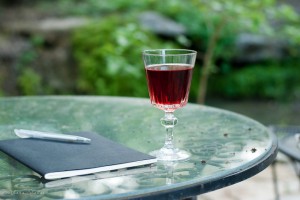What you’re about to read has probably been rattling around in your mind as something you know, as a communications expert for your winery, that you should be addressing.
What’s all over the news? The drought! What Governor Brown is doing, what ordinary people should be doing, what and how we should all be sacrificing, and more, right? Agriculture—with a capital A—is coming in for a lot of focus and a lot of criticism.
In The New York Times this past week, Mark Bittman mulled over the topic in a strong op-ed column. In “Making Sense of Water,” he made several points:
- “The solution lies with agriculture, which consumes more than its fair share.”
- “California produces more than 400 commodities in many different climates, so it’s difficult to generalize about agriculture. Many farmers are cutting back on water use, planting geographically appropriate crops and shifting to techniques that make sense, like “dry” farming.”
- “California grows fruits and vegetables for everyone; that’s a good thing. It would be an even better thing, however, if some of that production shifted to places like Iowa, once a leading grower of produce.”
The average person does not understand the nuances of farming; it’s our job to educate them. In addition, grapegrowing is so very intimately connected with specific terroirs, as we know so well—those terroirs can’t be outsourced; they are the lifeblood and identity of each winery business and its marketing.
Do some research and you’ll see that there’s another side to this coin. For example, also this week the AP reported on a study from the state’s legislative analyst that “California’s four-year drought has forced farmers to fallow 400,000 acres and driven 17,000 farmhands out of work” but also that “agriculture makes up only 2 percent of the state economy.”
How farms—yes, a vineyard is a farm!—use water is a very complicated question. Young vines may need more water or not. Weather may impact how much water is used in maintaining a healthy crop. Maybe your vineyards are dry farmed, but no one knows about it.
Sit down with your team and put together a position paper or a report on how your winery is handling the drought. Are you doing anything innovative? Are you moving to dry farming and is that necessitating changes in what is planted or how grapes will be harvested or whether or not you also adhere to organic or biodynamic practices?
Wine PR Lesson 201: take advantage of a controversial topic in the news and make it yours. Be a leader; be out front in explaining how you’re addressing the situation.



